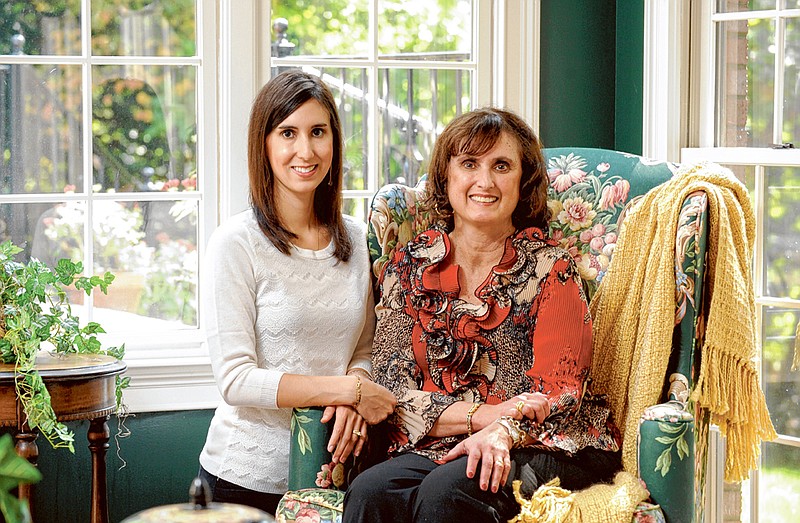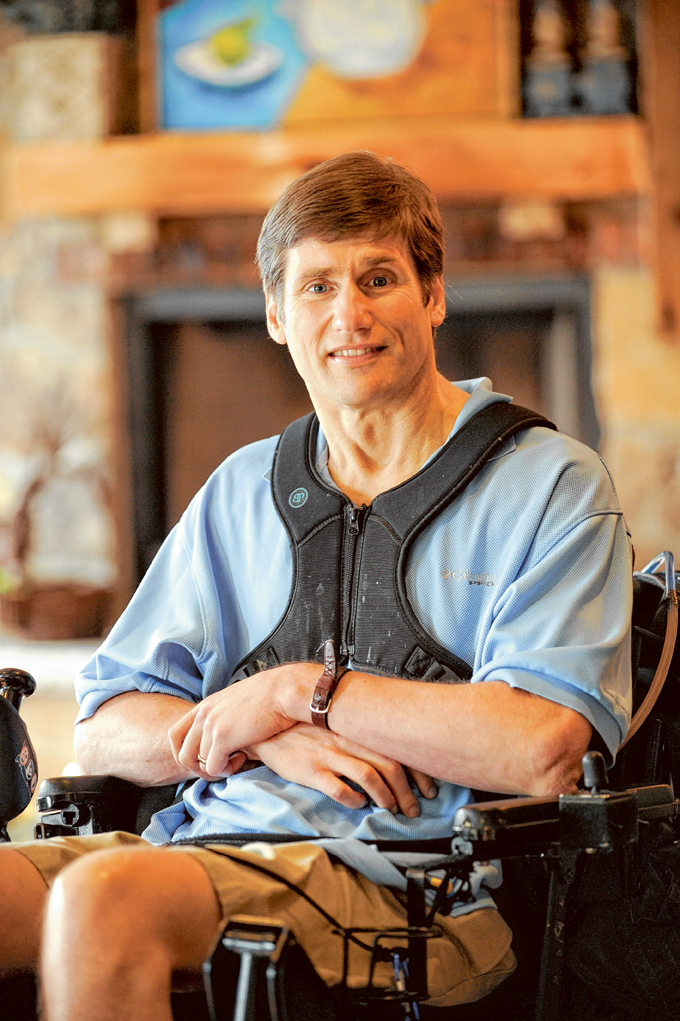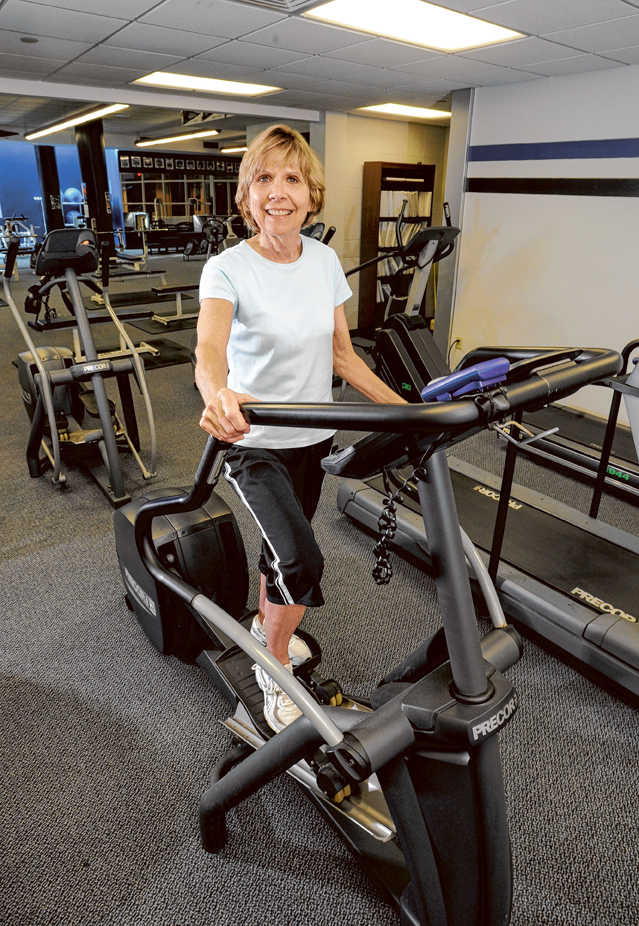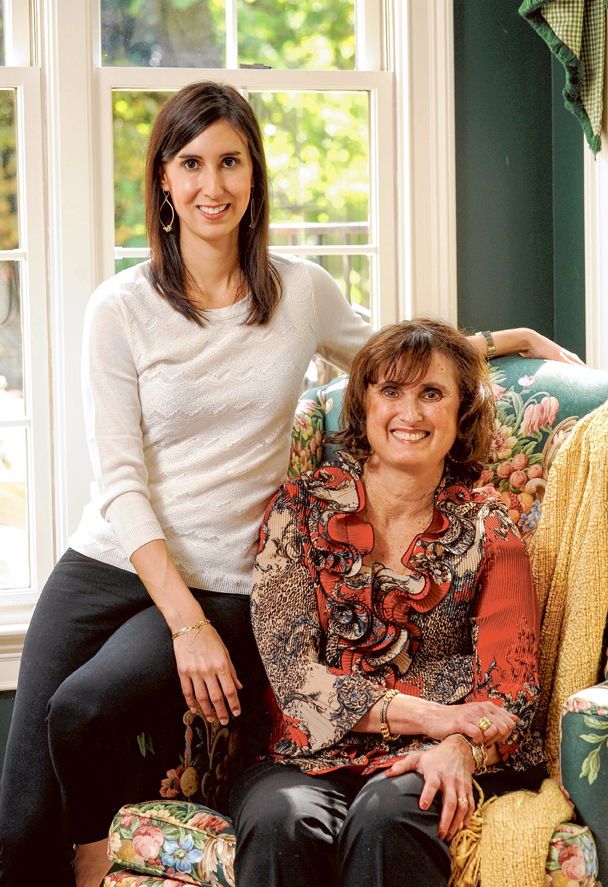For Dick Lindeman, the questions began 25 years ago when he was in his late 20s - typical timing for a disease that likes to make its debut during the prime of life. A Rhodes college graduate who played baseball, basketball, football and ran mini-marathons, Lindeman was caught off guard when the bottom of his feet went numb, a sensation that quickly worked its way up through his torso during the next seven days. Diagnosed with cervical transverse myelitis, he punched back with a round of steroids and prepared for a normal life with his bride, Charlotte.
"I was so independent and stubborn," says Lindeman. "I just moved on." Which wasn't so easy to do when Lindeman woke up blind in his left eye while on a business trip in Indiana. A trip to his neurologist confirmed that the numbness in his feet months before was connected to his blindness. His doctor told him that his nervous system was short-circuiting due to an autoimmune disease called multiple sclerosis. Lindeman's response was simply to go back to the office. He spent the next 20 years running two businesses and raising three children with Charlotte. But after a tumble down the staircase at his home, Lindeman decided to sell his business and turn his focus to faith.
"My MS woke me up," he says. "It's not about what you do. It's about who you are. That's where you find your value, your purpose." Lindeman has found his purpose by sharing his journey of faith with young people throughout the community. "God using a guy in a wheelchair is so effective," says Lindeman. "These kids love to come talk to me because I'm below them. I'm very approachable."
Physical educator Peggy Michaels shares Dick Lindeman's passion to connect with others through her multiple sclerosis. Diagnosed in 1989, she has spent 25 years learning to adjust to the complications caused by damage of her spinal cord. Michaels says her first symptom mimicked the sensation a pair of tight jelly shoes might leave on her feet. There was a feeling of numbness and constriction, which gradually escalated to become a loss of control over her left leg.
A P.E. teacher to the core, Michaels combated her new disease with exercise, which continues to be a steady presence in her life. "I think my love of activity has made the difference," says Michaels, who regularly works with a personal trainer and takes walks with her family.
With the help of her daughters, her grandchildren and the supportive community of Girls Preparatory School, where she leads the P.E. department, Michaels has come to see her MS as a great gift. "This disease has been kind to me," she says. "I've had so many amazing people walk with me, and I've gotten to show my students the reality of nerves and how the body works."
Dr. Michael Mena, a local surgeon, also had the opportunity to see his professional life play out at home when his fiancée, Vicky, suffered a sudden onset of double vision in 1977. Though he was familiar with the appearance of a sixth nerve palsy, Dr. Mena could only hypothesize about what had caused the paralysis of his wife's left eye. Multiple sclerosis was a possibility, but 35 years ago, making an accurate diagnosis was expensive and rare.
"I thought I was just reacting to a bad head cold," says Vicky Mena, who was driving when her vision went double. "Mike mentioned the possibility of MS, but I didn't want to think about it unless they could make an absolute diagnosis."
Following her three-month bout of double vision, Mena proceeded to live life as planned. She played tennis, went running and mowed an eight-acre lawn when she was seven months pregnant. "For the next 13 years I didn't have any definite episode that would stop me in my tracks," says Mena. "I would get fatigued sometimes, but I could always accommodate everything."
Which is exactly what she did for more than a decade. Chairing committees, volunteering for her church, raising three children and Greek dancing at every opportunity, Mena refused to slow down for years. After a time, though, the disease began to rob her of energy required to do things she loved. "I was on every type of treatment imaginable, but nothing seemed to stop it," says Mena. "My only choice was to push through as best I could."
Fiercely independent in spite of her disease, Mena now uses a scooter to accomplish things quickly and controls her car with her hands instead of her feet. But she said nothing could have prepared her for her daughter's diagnosis in 1999. "That was the cruelest blow," she says.
Fight MS for Lunch
What: 14th annual Women Against Multiple Sclerosis Luncheon. Honorary Co-Chairs are Charlotte Lindeman and Ann Caldwell.When: Thursday, Dec. 6 from 12 to 1 p.m.Where: Stratton Hall ~ ChattanoogaWho: This year's keynote speaker will be Ronda Giangreco of Sonoma, Calif., who is a wife, mother and author of the new book, "The Gathering Table: Defying Multiple Sclerosis With a Year of Pasta, Wine and Friends." Learn more about her at thegatheringtable.net.More: To get information about the luncheon, sponsorship opportunities or table hostess opportunities, contact Katie Turner at615-690-5323 or katie.turner@nmss.org.
I was diagnosed with MS 11 years ago, betrayed by my body with, what else, a case of double vision. I was home from college for the weekend and got into an argument with my mom about something I can't even recall anymore. In true 19-year-old form, I jumped in my car and headed out for a while. I panicked when the car in front of me suddenly cloned itself. I knew what was happening.
Having ravaged my mother's body for years, her MS wanted to move on to me. Given my disrespectful attitude that Saturday afternoon, it made sense that the disease would manifest itself in my body. I had sinned horribly, and it was time to pay the price.
For about a year I continued in that mindset, sure that every flare-up was punishment for something. It wasn't until I experienced a significant exacerbation one year later that I began to truly understand the lessons my mother had been teaching me all my life.
We aren't targeted by some higher power to get sick -though sometimes God chooses not to provide a physical cure. Our illness has a purpose, and it's up to us to find out what that is.
Over the years, I've continued to get knocked down by my disease. I've gone blind; been paralyzed; and felt chronic pain so excruciating it kept me awake for days on end. I've given myself shots; endured chemotherapy; and was once forced to cut my precious hair short as it started to fall out.
But I wouldn't trade any of it for the world.
In the silence of sickness, we are forced to relinquish any delusion of control we have over our lives and instead treasure the gifts in our heart. As we work to find a cure, we learn to cherish the mystery and peace of the unknown.
All we have to do is listen.
- Katy Mena



